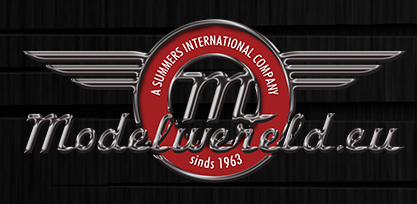Deze set bestaat uit 2 F-4B Phantom's
Unlike most military aircraft developments, the F4H was a company-funded development that initially did little to interest the US Navy. Nevertheless, the Navy started warming to the idea of a powerful carrier-based all-weather interceptor. First flown in May 1958, the prototype displayed impressive performance with the help of its twin afterburning J79 engines. The Phantom II was born.
Developed as the guided missile interceptor, the F4H, re-designated as the F-4 in 1963, featured a powerful intercept radar, a two-man crew, and up to eight guided missiles. This aircraft was supposed to make the air-to-air gun obsolete. That didn't happen, but that's another story. Typical loadout for the aircraft was four IR-guided AIM-9 Sidewinders on the inboard stations, four radar-guided AIM-7 Sparrow missiles in semi-recessed bays under the fuselage, and three external fuel tanks, two on the outboard stations and one centerline.
The Navy operated a limited number of F-4As for a brief time while their preferred initial configuration, the F-4B was under production. Combat experience with the F-4B and advancements in avionics and engine technology led to the next USN version - the F-4J. The F-4J featured the new AWG-10 radar, the J79-GE-10 engines, slatted tail surfaces and drooped ailerons. When the next Navy fighter was cancelled (F-111B) and its follow-on was experiencing some delays (F-14), the Navy performed service life updates to its Phantom fleet with the F-4B and F-4J receiving avionics upgrades and airframe life extensions. The upgraded F-4B would be designated as F-4N while the updated F-4J would be designated F-4S.
Twee uitvoeringen mogelijk;
- U.S.Navy; F-4B of VF-51 "SCREAMING EAGLES" CAG Bird of CVW-15 USS CORAL SEA.
- U.S.Navy; F-4B of VF-111 "SUNDOWNERS" CAG Bird of CVW-15 USS CORAL SEA.
Aantal onderdelen: 2X 114.
Afmeting:
- Lengte 248 mm
- spanwijdte 163 mm.


